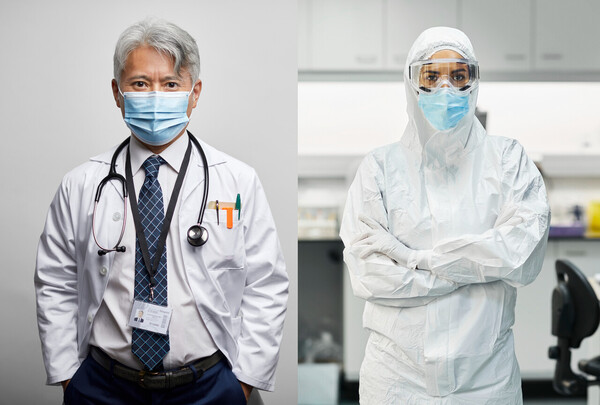
Decentralized clinical trials (DCTs) are already in vogue overseas, but the new trend is still in the pilot project stage in Korea. Why is the gap so wide?
"Difference of viewpoint” is the reason, according to Professor Yu Kyeong-sang of the Department of Clinical Pathology at Seoul National University Hospital. Professor Yu is in charge of DCT-related studies in the government’s ARICTT (Advanced Regulatory Innovation for Clinical Trial Transformation) platform to improve regulations on digital healthcare.
Clinical trials are studies conducted to create a basis for medicines and win approval from regulators. Only the process is similar to medical treatment. “And, this is where the difference of viewpoints arise,” Yu said in a recent interview with Korea Biomedical Review.
According to Yu, there are two viewpoints on clinical trials – one regards them as parts of treatments and the other as only research. The former thinks the collection of DCT participants’ data by researchers at medical institutions is part of treatments, which can be done smoothly only telemedicine is allowed by law. However, the latter thinks such activities are allowable for research purposes without legalizing telemedicine.
“In the U.S., Australia, and Europe, telemedicine is widely used. They are just applying ‘video treatment’ already in use to clinical trials,” Yu said. “However, it is difficult to introduce the research-oriented viewpoint to Korea.”
Korean regulators regard the conduct of clinical trials as treatment activities. In other words, to conduct clinical trials in this country, researchers should abide by all related laws, such as the Medical Service Act, the Act on the Prevention and Management of Infectious Diseases, and the Framework Act on Health and Medical Care.
However, during the Covid-19 crisis, the Ministry of Health and Welfare issued guidelines allowing non-face-to-face treatment temporarily, making it possible for researchers to consult and prescribe clinical trial medicines by phone, make proxy prescriptions, and deliver medicines to test participants.

“Because of Covid-19, the medical community experienced non-contract treatment, directly and indirectly,” Professor Yu said. “The non-face-to-face treatment became possible, albeit temporarily because they did not try to introduce it at once but gradually completed it in a hybrid form.”
Yu also expressed his hope that DCT will become possible naturally and gradually.
“Only then can Korea participate in global clinical trials,” he said. “It has already been proved that DCT raises the overall efficiency of clinical trials. If Korea continues to disallow it, the nation can suffer a disadvantage in the course of allocating global clinical trials by pharma companies.”
Pointing out that even conservative Japan conducts remote monitoring, Yu reiterated his wish to see signs of change not to lag behind foreign countries in a global clinical trial ecosystem.
The exclusion of Korea from global clinical trials means that Korean patient data will not be reflected in specific clinical trials. That, in turn, will lead to a shortage of ground when the drugs are introduced to Korea.
In reality, the Health Insurance Review and Assessment Service (HIRA) increasingly demands data on Koreans or Asians as the grounds for providing insurance benefits. Therefore, the exclusion from clinical trial allocation will affect patients’ access to treatment.
“Among the requirements of DCT, ‘remote monitoring of data’ is possible right now,” Yu said. “We can do it immediately by investing money and setting up a system, but we are not doing so.”
Yu noted that regulations work on a legal basis, like a cogwheel. As the clinical trial is one of the many areas, researchers will get what they want only when the entire healthcare ecosystem changes.
“Just as globally renowned hospitals put treatment and clinical trials on the same line, I hope the domestic medical system will not be mired only in treatment and think beyond the framework,” he said.
Government prepares DCT guidelines to present a model
The government is not exactly sitting idle, however. The Ministry of Food and Drug Safety is working out plans to introduce a system to conduct DCT. On Wednesday, the ministry announced a plan to introduce a new approach to clinical trials by, for instance, allowing wearables and mobile devices to be used.
Earlier, the government launched the ARICTT, a private sector-led regulatory reform platform, in April 2022 to establish a smart clinical trial system. In December, it also established the e-IRB (electronic Integrated Review Board) to speed up the review process and enhance its efficiency.
accelerating non-face-to-face business environment and data use, interest is growing in the new approach that grafts digital technology to designing and conducting clinical trials,” said Kim Ji-ae, a section chief at the ministry’s Clinical Policy Division. “The government is allowing some non-contact elements, such as e-consent and wired monitoring, case by case, but it has yet to present models, such as DCT’s definition, principles, and measures to protect digitally weak people.
Kim added that the ministry would develop a DCT model befitting the domestic environment to help strengthen competitiveness in clinical trials, protect participants, and raise reliability.
Related articles
- [Special] DCT was behind 1st Covid-19 vaccine developed in just 1 year
- [Special] 'Be it US, Europe, or China, DCT is global trend in clinical trials'
- [Special] Decentralized clinical trial is not an option but a must
- [KIMES 2023] ‘Medical devices should be similar for FDA 510(k) but differentiated for sales’
- Decentralized clinical trial emerges as irresistible trend. What about Korea?
- Clinical trials are shifting towards DCT but hybrid approach more likely: IQVIA execs
- Regulator ‘half-positive’ to digital healthcare firms' request to introduce DCTs
- JNP MEDI's pioneering role in DCT unveils enormous potential
- Korea's delay in decentralized clinical trials sparks global exclusion concerns: experts

